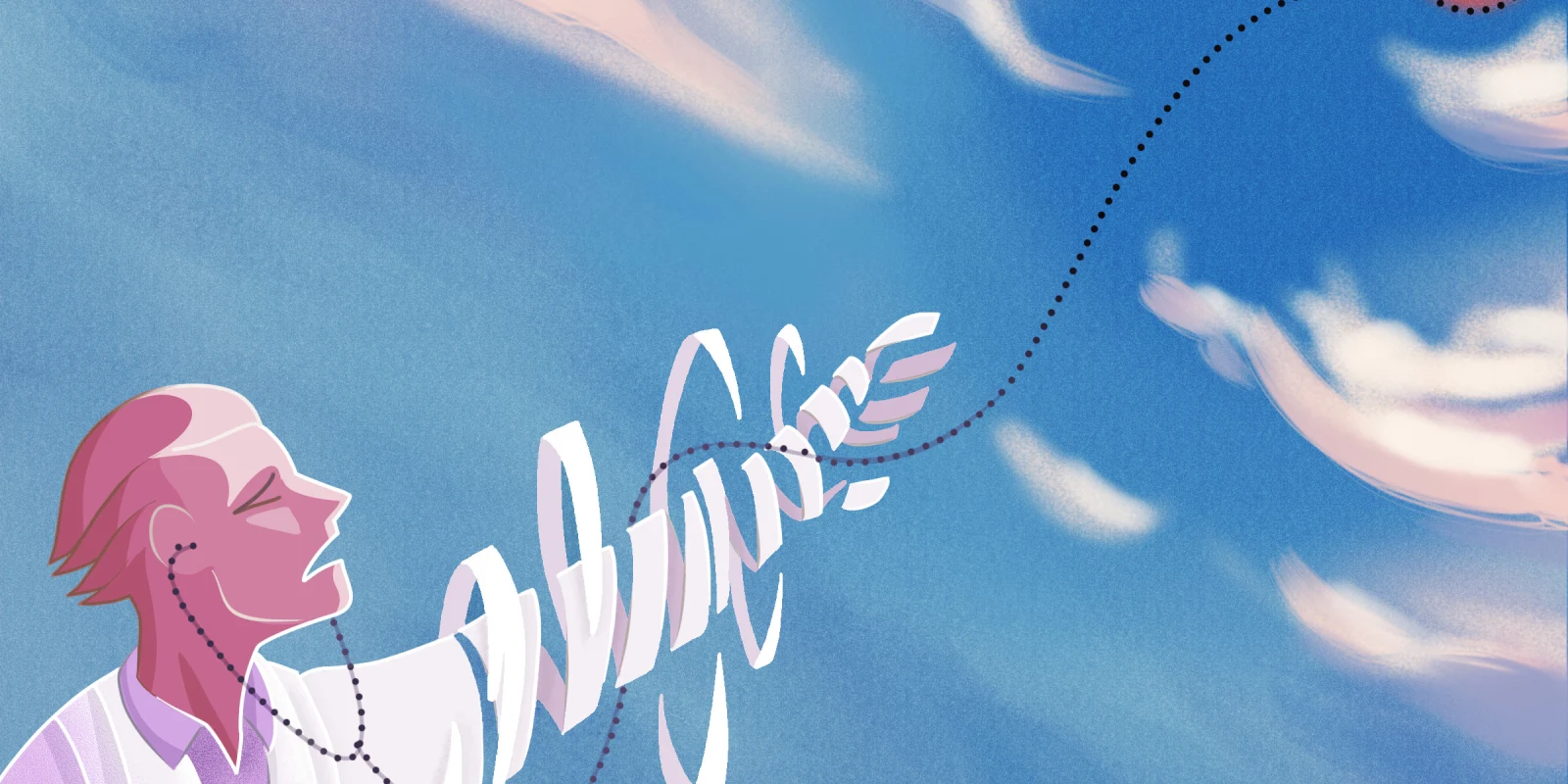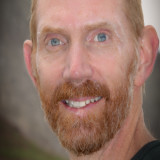Before I graduated from my surgical residency, I purchased a blue blazer, the kind one might wear to events at the country club. It was a strange decision because, as a young man, I never aspired to join a country club. I didn't golf or play tennis. I was an outdoorsman: hiking, camping, backpacking in the mountains, and canoeing in the boundary waters were my activities. And I was an artist at heart. I read books and took literature classes in college "just for fun." I dabbled in writing, performed on the university's main stage more than once, and learned to use a camera and a darkroom. I was a deep thinker interested in philosophy, anthropology, and great literature. In short, I saw myself as a Renaissance man, part scientist, part artist, and part dreamer interested in uncovering how to live a good life.
I wanted to be well-rounded, and my college experience reflected that desire. When it came time to decide what to do after graduation, no single discipline appealed to me. I wanted to find a field that would allow me to study the hard sciences while also exploring the human condition. Medicine seemed like the obvious choice. And so I voluntarily entered a dark void from which I emerged a very different person than the one I had intended to become.
Training to be a surgeon cost me a decade of my life — and not just any decade. I lost my 20s, "the defining decade" of my life, according to psychologist Meg Jay, PhD, who specializes in adult development. As she explains in her book, "80% of life's most defining moments take place by about age 35." During their twenties, most young adults will settle down, get married, experience the most wage growth, start a family, establish adult friendships, and make decisions that will determine how the rest of their lives unfold.
I only did one of those things. I got married, and it made an enormous difference in my life, but I put off everything else until later. And it cost me. As Jay warns, "Even if you do nothing, not making choices is a choice all the same. Don't be defined by what you didn't know or didn't do." And that was my mistake. I chose not to decide.
I believed it when everyone told me that it would all be worth it when residency was over, and that I would finally reap the rewards of my decade of sacrifices. I believed them when they told me there would be plenty of time for everything I had missed. I didn’t know, as Jay warns, that "doing something later is not automatically the same as doing something better."
What awaited my wife and I on the other side of residency was infertility. We have no way of knowing if we would have conceived a child easily in our 20s, but we struggled to become parents with our most fertile years behind us. We invested several years in ever more invasive attempts to get pregnant. The process dragged at our morale and made a sizable dent in that "big money" I was earning in medical practice. And one thought dogged us: by putting it off, we had made a big mistake.
We are among the lucky minority of couples who were able to conceive a family via IVF. If we had not been able to do so, we would have forever blamed ourselves for putting off starting our family. I'm sure we would not have thought it was all “worth it” if we had not been able to have the family we had planned. And that’s the problem: we had plans, but life has plans of its own — which is why it’s dangerous to put things off for an entire decade while thinking, "30 is the new 20." Thirty is not the new 20; biological 30 is still 30.
Putting off starting a family was the most obvious mistake I made, but I suffered from many other personal problems, too. It was disheartening to find myself at the bottom of the pecking order again after many years of work. I had expected all the good I had been promised to come flooding in; instead, I found that I was expected to make accommodations for more senior physicians.
I felt that my decade of sacrifice entitled me to something more. When I didn’t get it, I got angry. I could be childish and resentful. I held grudges against other physicians for slights both real and imagined. I failed to compromise when I should have because I believed it was finally my time to come first. And when I did not get my way, I became passive aggressive.
Even at home, I could be an emotionally disconnected jerk, always expecting to get my way and prone to pouting when I did not. While we were dealing with the emotional hardship of infertility, I was not available to support my wife in the way I should have been. In short, I had the emotional maturity of a self-involved 20-year-old. And why shouldn't I have? I had put off personal development for a decade. I had trained as a surgeon but failed to mature as a human being. At the age of 30, I was a highly skilled physician with the emotional maturity of a man a decade younger.
This is why I purchased that blue blazer. I had lost track of who I was. The decade between 19 and 30 is when the brain completes its last major growth spurt. According to Jay, "Personality can change more during our 20s than at any other decade in life." But I had failed to capitalize on this critical period. Instead of developing my personality, I crafted a persona. I worked hard to become what I thought a doctor and surgeon should be. I learned to say and do all the right things and conduct myself as a professional. But all of it was a mask I put on when I went to work.
I am no Superman. Clark Kent may put on the tweed jacket, glasses, and fedora to appear the mild-mannered news reporter, but under that façade, he’s still in his superhero spandex. Superman is always the Man of Steel, even beneath the carefully crafted exterior. But I was the opposite. I showed the world a façade, my version of Superman, but underneath the lab coat and scrubs, I was just Chuck. The problem was, I had forgotten who Chuck was.
It took me years to get myself straightened out. I probably could have done it faster if I had sought the help of a counselor. I didn’t because I was afraid that I would have to disclose it on my medical license application. So instead, I worked through my missing 10 years of emotional and personal development on my own, making myself and those around me miserable during the process.
After many years, I rediscovered that blue blazer in my closet. It had dust on the shoulders from disuse because I hadn’t ever joined the country club. I pulled it out and tried it on. It didn't fit, too big for the healthier version of me that I had become. I donated it to a local charity in the hope that it would help someone down on their luck start to make a better life.
The lesson from my experience is that medicine tries to remake you into what the medical system thinks it needs. Although the profession may think it wants cookie-cutter physicians who look, act, and think the same, it really needs healthy and well-adjusted individuals. If you are a medical student or resident, don't put off your life until you finish training. Make time for yourself now. Develop relationships, hobbies, friendships outside of health care, fitness routines, and even a family. All of your sacrifices will be worth it only if you don't sacrifice all. To be the best physician you can be, you also need to be the best person you can be. That means not putting off what matters most in life until you complete your training. It will be an uphill struggle, but it will be worth it.
If you are already in practice, take the time to reflect on how your training molded you. Is the person you are today the person you meant to become? Can you develop more as a human being? The most important thing you can do may be to focus more on developing yourself because better people make better doctors and better doctors drive better care. You need to start with the person. And, if you need to, find someone you can talk to, if only to ease the journey.
Medicine should not isolate us from our humanity. Current training models are robbing young doctors of the vital growth and maturation that occurs in their 20s. The result can be well-trained but emotionally immature individuals whose future lives and careers are limited by the decisive decade they are missing — years that they can never regain and missed opportunities that they cannot reclaim. There must be a way to train physicians to care for other human beings that doesn't require clinicians to sacrifice their own humanity.
Did you make sacrifices during your training that you regret? What would you do differently? Share your thoughts in the comments section.
Charles Black was born and raised among the cornfields of rural Iowa, but moved to the Colorado mountains as soon as he got the chance. He is a general surgeon, writer, photographer, outdoorsman, trail runner, and fires-side philosopher. His musing on medicine and life in general can be found here and you can view his photography here. Dr. Black was a 2019–2020 Doximity Op-Med Fellow and is currently a 2020–2021 Doximity Op-Med Fellow.
Illustration by April Brust






